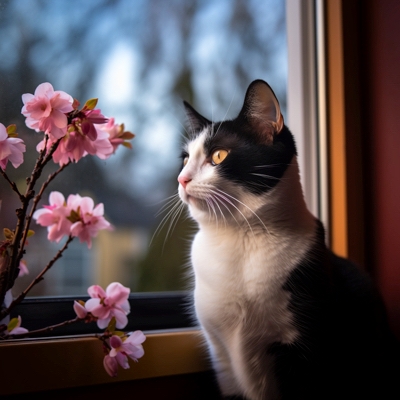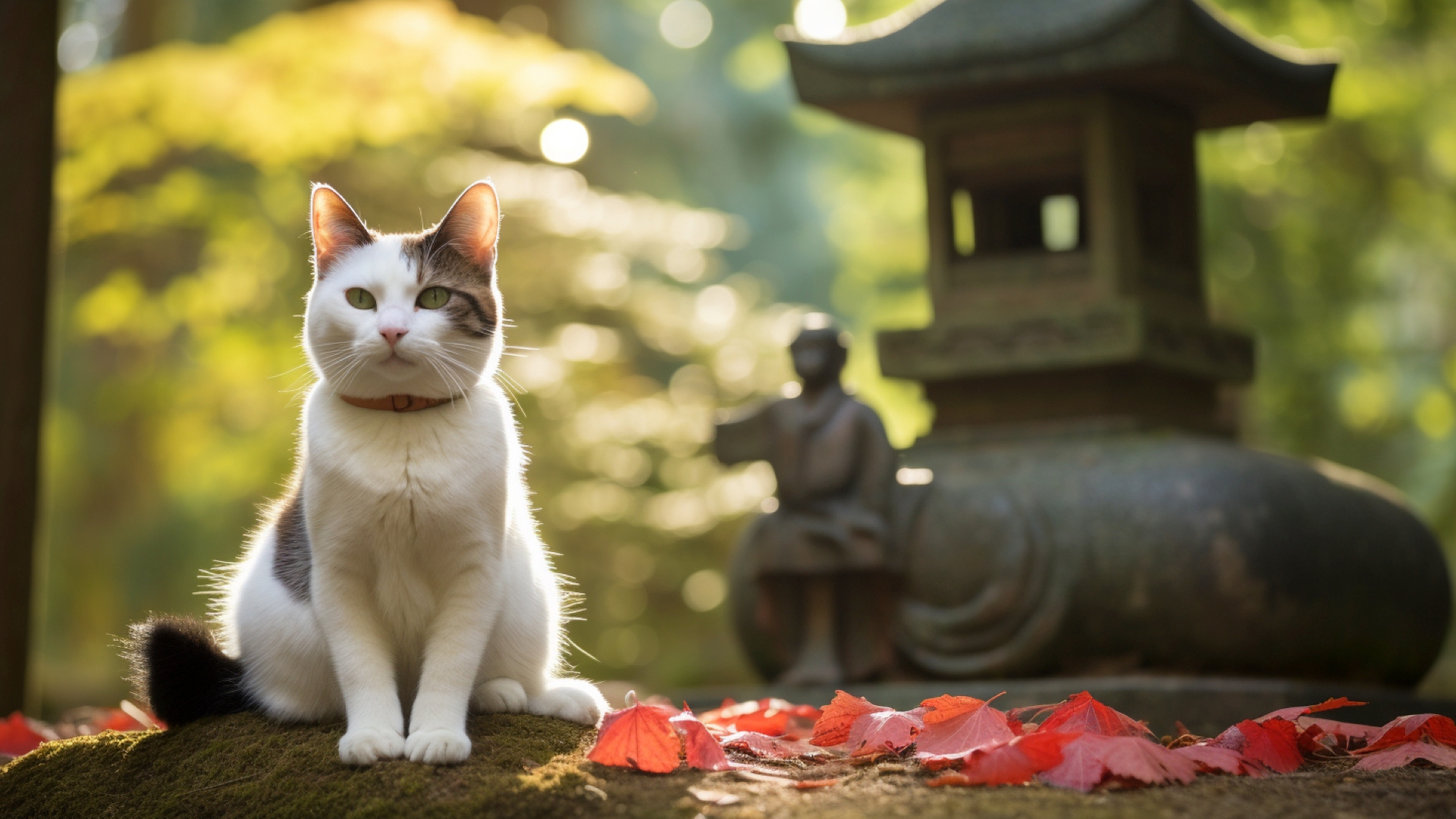The Japanese Bobtail:
A Symbol of Luck in Feline Form
Summary:
The Japanese Bobtail, with its unique pom-pom-like tail and graceful demeanor, is more than just a pet—it's a living symbol of luck and prosperity. In this article, we explore the rich cultural significance of this beloved breed in Japan, where it is often associated with the iconic Maneki-neko, or "lucky cat" statue. We delve into the Japanese Bobtail's distinctive physical characteristics, friendly and affectionate personality, and the special considerations for their health and care. Plus, we guide you through the process of adopting a Japanese Bobtail in Oregon, where they are becoming a cherished addition to many Portland homes.


- The Cultural Significance of the Japanese Bobtail in Japan
- Distinctive Physical Characteristics
- Personality and Temperament: A Friendly Companion
- Health and Lifespan Considerations
- Care and Grooming Essentials
- Training Tips for Your Japanese Bobtail
- The Japanese Bobtail’s Presence in Portland
- Adopting a Japanese Bobtail in Oregon
In the Land of the Rising Sun, where folklore and tradition are woven into the fabric of daily life, the Japanese Bobtail holds a special place. This breed, with its distinctive, pom-pom-like tail, has been a beloved part of Japanese culture for centuries. Legends tell of these cats bringing good fortune, and they are often associated with the iconic Maneki-neko, or "lucky cat" statue that graces many a shop entrance in Japan. From ancient scrolls depicting these elegant felines to their modern-day status as a symbol of luck and prosperity, the Japanese Bobtail is a living piece of Japan’s rich cultural tapestry.
The Japanese Bobtail is a visual delight, with its unique, short and curled tail resembling a pom-pom, setting it apart from other breeds. This tail is the defining characteristic of the breed, and no two tails are exactly alike. Their coat, which can come in various colors and patterns, is silky to the touch. The most prized is the tricolor pattern, known as "mi-ke" (pronounced mee-keh), which combines white, black, and red. Their graceful, athletic build and expressive, almond-shaped eyes complete their enchanting appearance.
Japanese Bobtails are known for their social and affectionate nature. They are intelligent, curious, and playful, often engaging in fetch or hide-and-seek games with their human companions. Their vocalizations are soft and melodious, and they are known to "talk" to their owners with charming chirps and meows. Despite their playful energy, they are also incredibly loving and enjoy cuddling with their human family members, making them excellent companions for households of all sizes.
Japanese Bobtails are generally a healthy and robust breed, with a lifespan that often exceeds 15 years. They are not known to have any breed-specific health issues, but like all cats, they benefit from regular veterinary check-ups. A balanced diet, such as Hill's Science Diet Indoor Cat Food, and regular exercise are key to keeping them in optimal health.
The Japanese Bobtail’s coat is relatively low-maintenance, but regular brushing with a Hertzko Self Cleaning Slicker Brush will help to keep it in pristine condition. Dental care is also essential; consider using Virbac C.E.T. Oral Hygiene Chews to help maintain your Bobtail’s dental health. Environmental enrichment, such as climbing trees and interactive toys, is essential for mentally and physically stimulating your Bobtail.
These intelligent cats are highly trainable and respond well to positive reinforcement techniques. Litter training is usually a breeze, and they can even be taught tricks or to walk on a leash with a PUPTECK Adjustable Cat Harness. Early socialization is critical, and addressing any behavioral issues with patience and consistency is vital. For more tips, consider consulting a local Portland cat behaviorist.
In Portland, a city known for its love of animals and its vibrant cultural scene, the Japanese Bobtail is a perfect fit. Local Japanese Bobtail clubs, such as the Pacific Northwest Cat Club, celebrate this breed, and cat shows in the area often feature a strong Japanese Bobtail presence. Their calm demeanor makes them excellent candidates for therapy animal work, bringing comfort to those in hospitals and nursing homes throughout the city.
For those looking to adopt, Oregon is home to several Japanese Bobtail breeders and rescue organizations. Preparing your home for a Japanese Bobtail is similar to preparing for any other cat but with consideration for its playful and active nature. Adoption fees vary, but supporting a local rescue organization is a rewarding way to find your new family member. Check out the Japanese Bobtail Rescue Me > Oregon page for adoption options.
As the sun sets over the Willamette River, painting Portland in hues of gold and pink, a Japanese Bobtail might be found perched by a window, its unique tail twitching contentedly. With its rich history and affectionate nature, this breed is more than just a pet; it’s a living symbol of luck and a cherished companion. Whether you’re considering adopting a Japanese Bobtail into your family or you’re captivated by their story, it’s clear that these cats are more than just pets; they are a heartwarming part of homes across Oregon and beyond. So, is your home ready to welcome a touch of luck in feline form?


